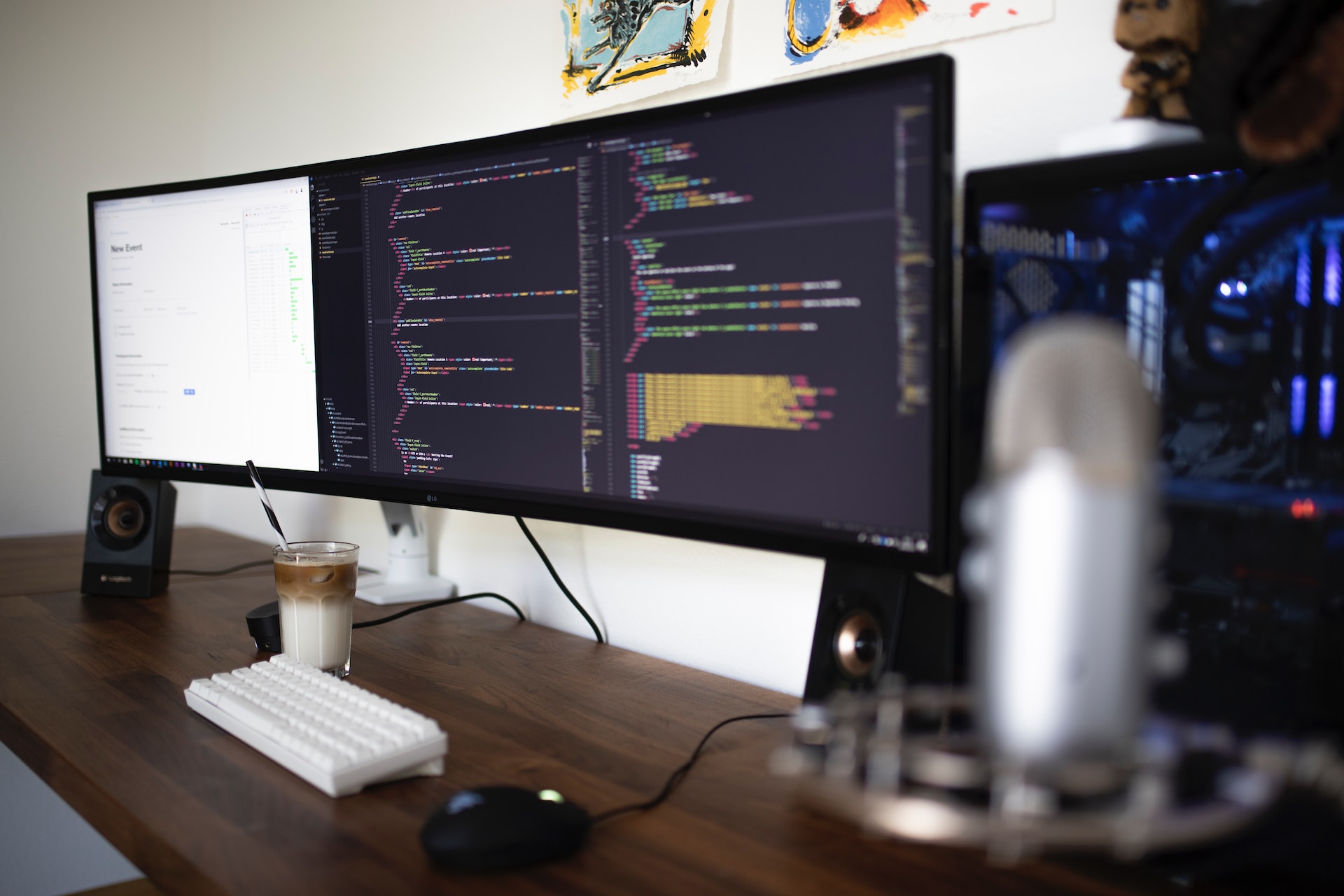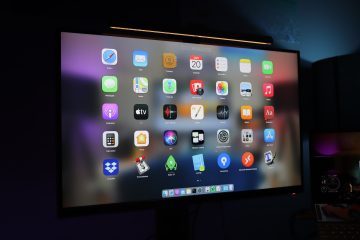Programming applications are software programs that are designed to perform specific tasks or functions. These applications are created using programming languages and are used in various industries such as web development, mobile app development, and data analysis.
Programming applications are essential in automating processes, managing data, and solving complex problems. They are used by programmers to write code, debug programs, and test software. These applications play a vital role in enhancing productivity, improving efficiency, and promoting innovation in today’s digital world.
With the increasing demand for software solutions, there is a growing need for skilled programmers who can develop and maintain these applications. As technology continues to advance, programming applications will continue to evolve and play an even more significant role in various industries.
Understanding The Basics
In today’s digital landscape, understanding the basics of programming applications is of utmost importance. These applications are defined by their significance in various industries, showcasing the power of coding potential. From web development to mobile app creation, programming applications encompass a wide range of tools and technologies.
It’s essential to have an overview of different types of programming applications to navigate this dynamic field effectively. By diving into the world of programming languages and frameworks, developers can harness their skills and create innovative solutions. With the right understanding and expertise, programmers can build robust applications that cater to the evolving demands of users.
Embracing the fundamentals of programming applications is the key to unlocking unlimited possibilities and driving technological advancements. So, explore the realm of coding and unleash your potential in programming applications.
Types of Programming Applications
Programming applications, often referred to as software applications or simply “apps,” are computer programs that perform specific tasks or functions to meet user needs. These applications are created using programming languages and development tools and can run on various computing platforms, such as desktop computers, mobile devices, web browsers, and servers. Here’s an overview of programming applications:
- Desktop Applications: These are software programs designed to run on personal computers or workstations. Examples include word processors, spreadsheet software, photo editors, and video players.
- Mobile Applications: These are designed to run on smartphones and tablets. Mobile apps are typically available through app stores and can serve various purposes, such as social networking, gaming, productivity, and navigation.
- Web Applications: Web apps run on web browsers and are accessed over the internet. They can be static web pages or dynamic, interactive platforms like social media sites, online shopping portals, and web-based email clients.
- Server Applications: These applications run on servers and provide services or data to other software components or clients. Examples include web servers, database servers, and cloud services.
- Embedded Applications: Embedded software is used in embedded systems, such as IoT devices, medical equipment, and automotive systems. These applications control and monitor hardware devices.
- Scientific and Engineering Applications: Specialized software used in scientific research, simulations, data analysis, and engineering design. Examples include CAD (Computer-Aided Design) software, simulation tools, and data analysis software.
- Gaming Applications: Video games are a significant category of applications that require complex programming and often involve graphics, physics, and artificial intelligence.
Unleashing Your Coding Potential
Developing a growth mindset is crucial for programming success. It involves nurturing creativity and problem-solving skills, which are essential in this field. To unleash your coding potential, you must master foundational programming concepts and languages. With the right mindset and skills, you can tackle complex coding challenges and constantly evolve as a programmer.
Embracing a growth mindset allows you to approach problems with an open mind and see setbacks as opportunities for learning and growth. By continuously expanding your knowledge and skillset, you can stay competitive in the ever-evolving world of programming. So, invest in your personal and professional development, and unlock your full coding potential.
Maximizing Productivity With Programming Applications
Maximizing productivity with programming applications involves automating repetitive tasks through script-based applications. Streamlining data analysis is also made possible through coding. Additionally, enhancing efficiency is achievable with project management and collaboration tools. By utilizing these programming applications, businesses can eliminate manual processes, save time, and reduce errors.
These applications enable the automation of various tasks, allowing employees to focus on more complex and strategic activities. Coding empowers data analysts to handle large datasets more efficiently, leading to improved decision-making. Project management and collaboration tools facilitate seamless communication, task assignment, and progress tracking, resulting in enhanced teamwork and project efficiency.
Investing in programming applications is an effective way to optimize productivity and achieve organizational goals.
Enhancing User Experience Through Application Development
Developing programming applications involves designing intuitive interfaces and user-friendly features, ensuring optimal user experience. This includes implementing responsive web and mobile applications that adapt to various devices. By prioritizing performance and compatibility, applications can seamlessly function across different platforms. The goal is to create applications that make users’ tasks easier, providing a smooth and efficient experience.
This involves understanding user needs, preferences, and behavior to tailor the application’s interface and functions accordingly. Through diligent and strategic application development, programmers can enhance user experience and create applications that meet the demands of a technologically advanced world. With responsive design and efficient performance, developers can create applications that are intuitive and accessible to users, regardless of the device or platform they are using.
Harnessing The Power Of Programming Applications In Business
Programming applications play a crucial role in modern businesses, enabling them to harness their power effectively. By leveraging data analytics, organizations can make informed decisions that drive growth and success. These applications seamlessly integrate various processes and workflows, optimizing efficiency and productivity.
Additionally, they enhance the customer experience by providing personalized applications tailored to their needs. By utilizing programming applications, businesses can unlock a world of possibilities and stay ahead of the competition. With a focus on data-driven decision-making and seamless workflows, organizations can leverage these tools to drive innovation and achieve their goals.
Ultimately, programming applications are essential for businesses looking to thrive in today’s technology-driven world.

Credit: axiomq.com
Exploring Exciting Fields Of Programming Applications
Have you ever wondered about the exciting fields of programming applications? One such intriguing field is gaming and virtual reality. These applications offer immersive experiences, taking users to different realms and adventures. Another fascinating area is the Internet of Things (IoT) and smart technologies.
With IoT, everyday objects are interconnected, bringing automation and convenience into our lives. Additionally, artificial intelligence and machine learning applications have revolutionized various industries. AI-powered systems can analyze vast amounts of data and make intelligent decisions. These advancements are reshaping the way we live, work, and interact with technology.
Whether it’s exploring virtual worlds, leveraging smart devices, or harnessing the power of AI, programming applications continue to drive innovation and change. Get ready to dive into a world of endless possibilities!
Staying Ahead: Trends And Future Of Programming Applications
Programming applications are constantly evolving to keep up with emerging technologies like automation and artificial intelligence. These advancements have had a significant impact on coding practices, introducing new possibilities and challenges. Developers need to stay ahead of the game, anticipating trends and adapting their skills to remain relevant in the ever-changing programming landscape.
As automation and AI continue to reshape the industry, there are both opportunities and hurdles to navigate. Embracing these technologies can streamline processes and improve efficiency, opening doors to innovative solutions. However, the rapid pace of development also presents challenges, requiring programmers to continuously update their knowledge and skills.
With programming applications becoming more complex and diverse, staying ahead is essential to success. By understanding and embracing emerging technologies, programmers can seize new opportunities and tackle the challenges head-on, shaping the future of programming applications.
Frequently Asked Questions For Programming Applications
What Are Applications In Programming?
Applications in programming refer to software programs that are created to perform specific tasks or functions.
What Are The 4 Types Of Programming?
The 4 types of programming include procedural, object-oriented, functional, and event-driven programming.
What Software Does Programmers Use?
Programmers use a variety of software tools to code and develop programs.
What Are The Benefits Of Programming Applications?
Programming applications have numerous benefits. They allow users to automate tasks, streamline processes, and enhance efficiency. Applications can also improve communication, enable data analysis, and provide customized solutions to specific needs. Ultimately, programming applications empower individuals and businesses to optimize their productivity and achieve their goals.
Conclusion
Programming applications have revolutionized the way we interact with technology, enabling us to be more efficient and productive in our daily lives. From mobile apps that help us manage our schedules to complex software that powers entire industries, the possibilities are endless.
By harnessing the power of coding and algorithms, developers can create applications that cater to our ever-evolving needs. The role of programming applications goes beyond just convenience. They have become an integral part of how businesses operate, enabling them to streamline processes, improve customer experiences, and drive growth.
With the increasing demand for digital solutions, the need for skilled programmers to develop and maintain these applications is also on the rise. As technology continues to advance, the future of programming applications looks promising. From artificial intelligence to virtual reality, developers are constantly exploring new frontiers and pushing the boundaries of what is possible.
So whether you’re a developer looking to enhance your skills or a business owner in need of bespoke software, investing in programming applications is a surefire way to stay ahead of the competition. In a world that relies heavily on technology, programming applications have become a ubiquitous part of our lives.
They have transformed our daily routines, enhanced business operations, and opened up new avenues for innovation. So as we continue to embrace the digital age, let’s celebrate the power and potential of programming applications.




